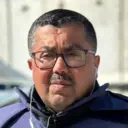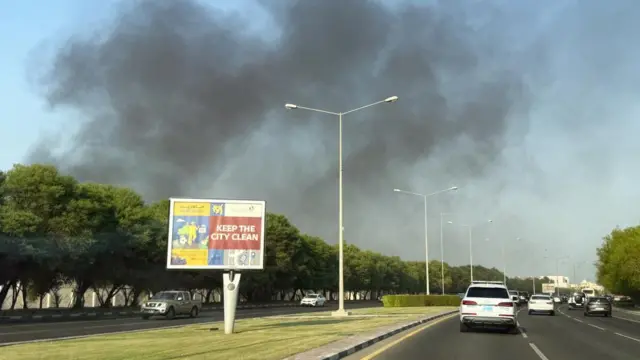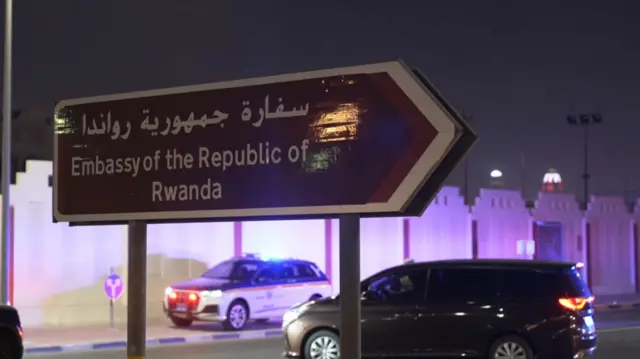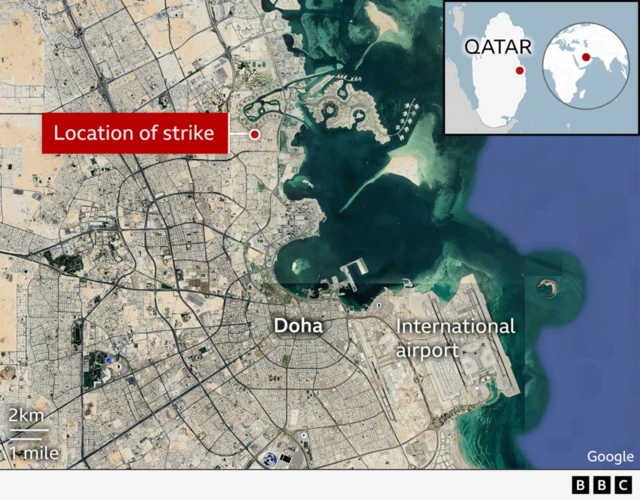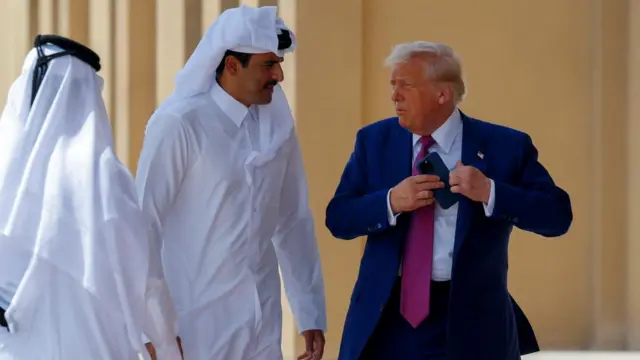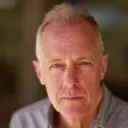UK teacher in Doha says blast brought back a 'sense of panic'published at 22:33 BST 9 September
Mary Litchfield
UGC Hub & Investigations
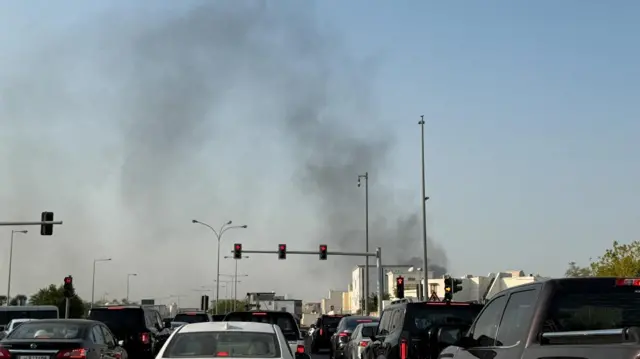 Image source, Reuters
Image source, ReutersSmoke seen in Doha after the Israeli strike on Hamas leaders
A teacher from the UK who works in Doha says he had just left work when he heard the blasts.
"We thought there was something wrong with the car," he tells the BBC, wishing to remain anonymous, until he heard another blast and realised it was explosives.
Similarly to another resident we spoke to, the incident reminded him of Iran's strikes on a US military airbase in Doha in June.
"It brought back the feeling of before - that sense of panic, worry and concern - you think 'oh God, is it happening again?'"
"You could see people freeze in the car park, the birds are all going crazy, [and] you realise you’re not alone and right to be worried," he says, adding that it is "very scary" for young families.
"It’s a worry and the second time in a few months. There’s always risks when you’re working away from home, but it doesn’t make it any easier.”
